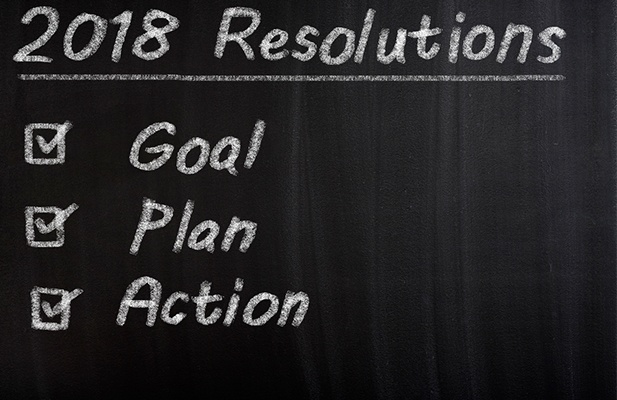
New Year's is a natural time for reflecting and looking inward, doing some self-assessment. It's an opportunity to evaluate the previous year and set some goals for the upcoming one. Unfortunately, many of these new goals don't last, and on average, most people abandon their efforts before March. This can lead to a depressing cycle of having the same resolutions year after year, without success.
Setting fitness goals, at New Year’s or any other time, is a great idea. Physical fitness prevents illness and injury, improves mood and cognition, and makes everyday life easier. And yet these seem to be among the most difficult goals to reach. So how do you set fitness goals you can maintain? Here’s how to make it happen:
Set good goals
Success is all about setting the right goals for you. Goals should be specific and measurable, and placed in time. Goals like “get in shape” or “lose weight” are vague and difficult to action or assess.
Some examples of good goals might be:
- Complete a marathon this year
- Fit into a favorite pair of jeans again within 4 months.
- Be able to lift x pounds by June.
If your goals are specifically about weight and shape, those aren't particularly helpful or motivating. Identify your goals in terms of abilities and experiences rather than size and weight. For example, you might think that if you lost X pounds, you could go on a beach vacation and feel good in a bathing suit. In that instance, it's better to use a goal like “fit into a size X bathing suit by June 30th for summer vacation.” That way the goal includes its own motivating factor, and you're focused on the end, not the means.
Don't set potentially competing goals
For example, if your goal is both to have an X-inch waist and to run a mile, you may accomplish one but not the other. If you set multiple, competing, time-consuming goals, you will find that working toward one might undermine another. Be realistic with your expectations about time and commitment, and focus on one thing at a time.
Find a greater purpose
When you feel less motivated, it's helpful to have a sense of a greater purpose to keep you on track. Make your fitness goals part of supporting a charity, or in honor of a loved one. Whether you've decided to get fit in order to help feed the hungry or play with your grandchildren, focusing on your purpose can help keep you focused.
Track your progress
Many people use apps to track their progress, but consider actively keeping a journal and writing down your progress. Keeping personal notes allows you to record not just what you did, but how you felt. This kind of journaling may help you identify personal patterns or stressors (do you skip workouts when your job is demanding? do you eat late in the day if you can't sleep? is it more difficult to get motivated on dark winter mornings?). You may even want to supplement your journal with photographs so you can literally see your progress! Knowing your patterns can help you account for them. And tracking your progress helps keep you focused.
Find healthy rewards along the way
There are apps that will give you points and rewards—sometimes even cash—for progress toward your goals. Use them if they help you. If not, find meaningful rewards that you can use to celebrate your progress without undermining your goals. Reward yourself often, and recognize how much progress you have made. Particularly with fitness and exercise, any amount is worthy of recognition, and should be celebrated.
There is a difference between setting short-term fitness goals, and moving forward into a long life of healthy habits, but accomplish one thing at a time and honor yourself along the way, and the lifestyle will follow. Remember that fitness is an act of self-care, and never one of self-punishment. Have a Happy New Year, and make it the first of many years in which you take care of yourself and your heath!








